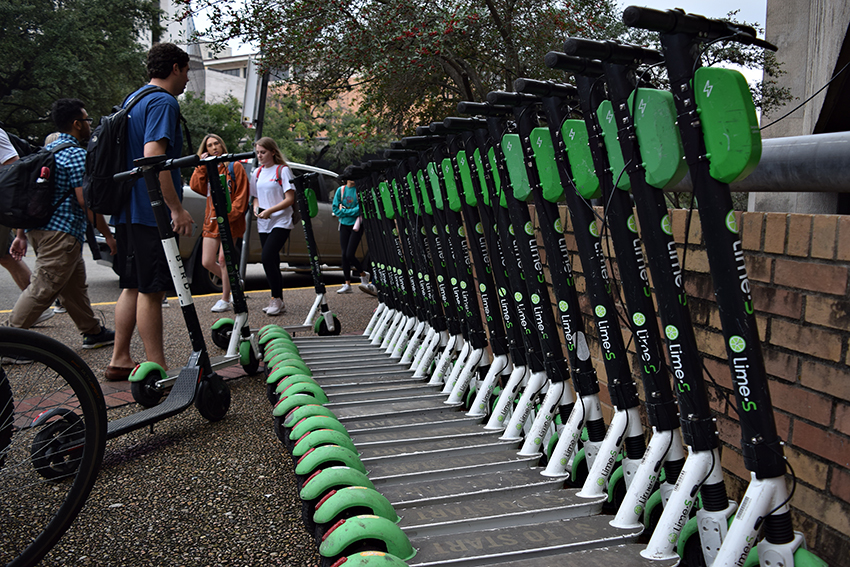City of Austin staff reported there is limited data on electric scooter collisions and blockages throughout the city, according to an audit presented on Aug. 28 to the City Council, and said more community involvement around regulating electric scooters would improve data collection.
Over the past five years, people in the city have taken around 18 million trips on electric scooters, and the community has safety concerns due to collisions, sidewalk blocking and traffic flow, according to the audit. The city currently has regulations that allow only 6,700 Lime and Bird Electric scooters.
“We heard (of) plenty of times, right, people look at them and they go, ‘Oh my gosh, I don’t like those scooters,’” assistant city auditor Patrick Johnson said. “They’re messy … We heard that a lot, and obviously, our city staff heard that. The companies themselves hear that, so everybody hears that.”
Johnson said there were some discrepancies in information reported to the city about electric scooter collisions. Scooter providers are required to submit monthly collision reports to Austin Transportation and Public Works, and according to the audit, one provider reported 342 collisions between 2022 and 2023, and two providers reported zero. Johnson said there was also no way to fact check reports on collisions.
“As we were looking at it, it didn’t appear that everything that should be reported (was) … there was no confidence that everything was getting fixed,” Johnson said. “(But) we have confidence that some of them are getting it right.”
Johnson said it didn’t seem like the city made enough effort to reach out to different members and stakeholders when creating rules for electric scooters. He said developing these rules needs reliable data and input from the whole community because of the amount of people that rely on scooters for transportation.
“What we want to see is the city get the information that it is required to get, so if we’re requiring information on collisions, let’s try to get that information,” Johnson said. “Let’s try to get that, certainly, from the companies themselves. But if not, let’s go out (and) get that information somewhere else. But the bottom line is, we need good information to be able to make informed decisions.”
Undeclared freshman Charlee Conci said she sees people riding scooters all over Speedway, and they are left around campus frequently. She said she wished there was a more organized return system and better right-of-way restrictions.
“It seems like people on the scooter expect you to move out of the way for them because they are the ones who are riding the scooter,” Conci said. “But I feel like it should be the opposite, like how if you’re driving a car, the pedestrians always get the right of way. It should be the same for scooters.”
According to the audit, electric scooters only arrived in Austin in April 2018, making them a fairly recent mobility option. The audit also compared electric scooter rules and regulations across other cities across the U.S., and all the cities generally had similar electric scooter regulations.
“Complicating factors (are that) this is a fairly new industry with a lot of changing companies,” Johnson said. “You have similar problems that no one has quite put their finger on what the solution is.”














